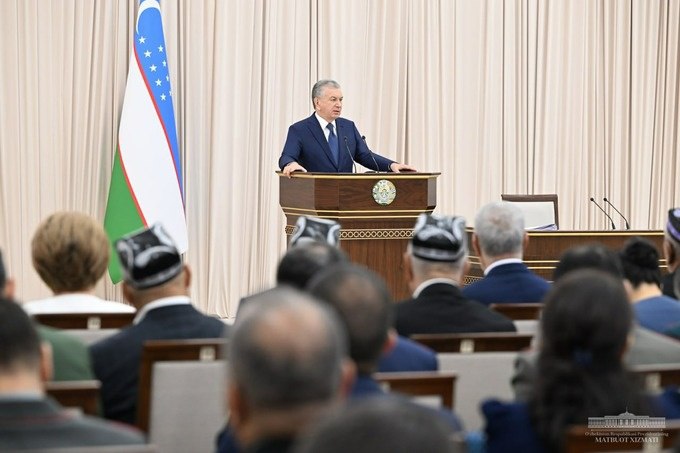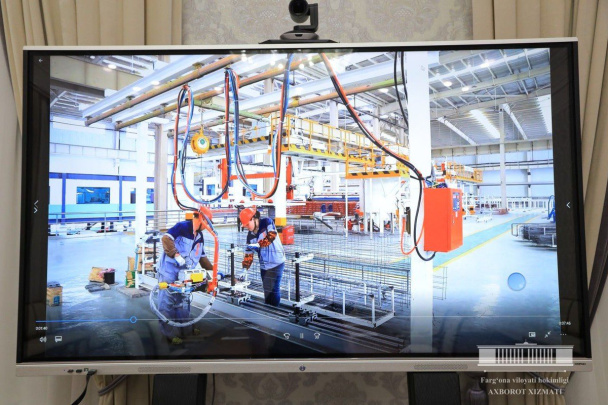President Mirziyoyev proposes leaving 50% of personal income tax in local budgets
Shavkat Mirziyoyev held a meeting on the socio-economic development of the Fergana region.

At the meeting, it was noted that over the past 7 years, investment in the region has tripled, and local producers have entered 60 new markets. However, the introduction of new approaches to development, based on more active support for business, could increase these figures by 2-3 times.
In terms of industrial production growth, the region ranks last in the country. There have been delays of 4-5 years in the implementation of several projects.
The president drew attention to the situation with cement production. Due to high production costs, local products cannot compete with imported ones, and regional factories are operating at one-third capacity.
One reason for this is the lack of attention from the khokimiyat to energy costs, the president emphasized. He also urged increasing concrete production and pointed out that builders' needs are only 50% met by local enterprises.
He also noted the slow progress of work under the "Initiative Budget." It has been instructed to allocate funds from the regional budget to address issues with electricity, gas, and roads in 35 neighborhoods.
The issue of introducing a rule on transferring up to 50% of the collected personal income tax to district and city budgets will be considered. This should help with financing local tasks.
The governor and his deputies, as well as the mayors of 19 districts and cities, will have to receive a minimum of 5 businessmen daily to solve their problems. They will also need to inform the public and businesses through the media about ongoing changes weekly.
In addition, it has been instructed to revise the poverty reduction system. The expanding coverage of neighborhood "sevens" in working with the population requires new approaches.
The president announced the unification of tasks for poverty reduction and social support under the National Social Protection Agency.
Related News

19:57
Uzbekistan exempts mobile communication services from excise tax

17:53
Gov’t increases budget allocations for National TV and Radio Company in 2025

20:27 / 25.12.2024
Chinese company to invest $25 million in construction materials plant in Fergana

17:05 / 25.12.2024



